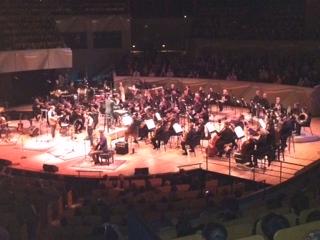
But the work gradually faded from view, mostly owing to the shortcomings of Gian Carlo Menotti's overly melodramatic libretto, which unfolds in a Northern European country in 1905 and tells the story of a melancholy aristocrat who falls for the rakish son of her former lover.
However, over the last couple of decades, "Vanessa" has made a comeback.
Audiences and critics have recognized the dramatic power of Barber's score. "'Vanessa,' unlike many American operas for which great claims are made, has real musical substance and increases its hold on the audience as the evening goes on," the critic Alex Ross noted in a review of the Washington Opera's 1995 staging for The New York Times.
The Boulder Opera's new production of this reinstated gem, starring Meagan Mahlberg in the title role, opens this weekend at Boulder's Dairy Center for the Arts.
Featuring direction and video by Aaron Angello, Jessica Page's choreography and the Boulder Philharmonic under the direction of Michael Tilley, "Vanessa" represents the two-year-old company's first foray into staging a full-length experimental work.
CPR chatted with Tilley about how the company developed its staging of the opera.
CPR: Why is the Boulder Opera staging "Vanessa"?
Michael Tilley: The part of Vanessa can claim an impressive roster of talents, to be sure. And let us not forget the incomparable Eleanor Steber, who stepped into the role a mere six weeks before the premiere at the Met in 1958 and displayed memorable range and sensitivity in her rendering of this complex and demanding character. I believe that great singers love this role largely because its bravura demands are immediately and viscerally rewarding for the singer as well as for the audience. Samuel Barber himself nearly became a professional singer and the rare recordings of radio broadcasts of his performances of Schubert lieder truly showcase his rich and mellow baritone. Hence, he knew at the most basic level how to write lyrical, impassioned music that, while it may appear quite difficult -- and it is! -- is only ever so in service of the emotional content of the language itself.









